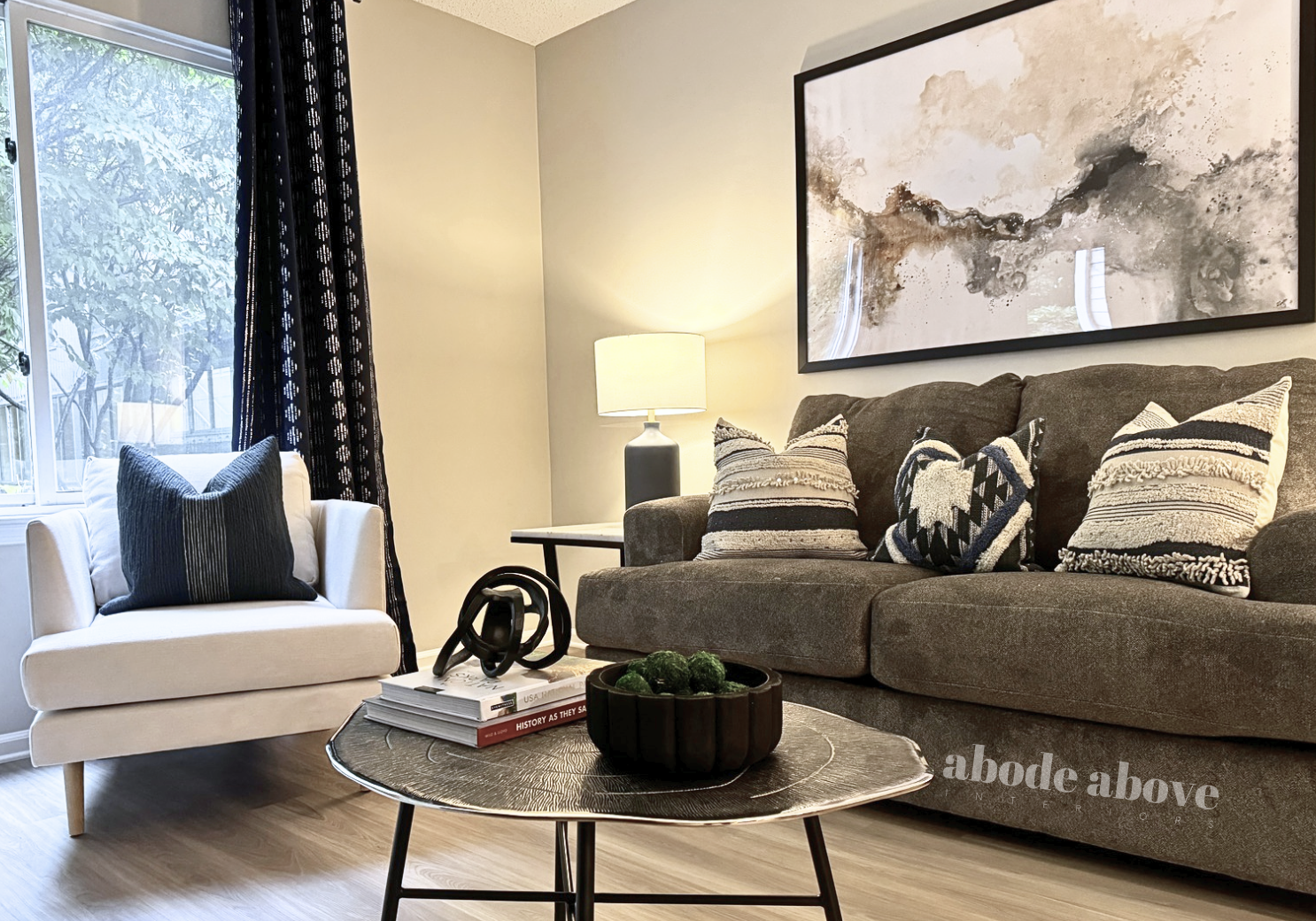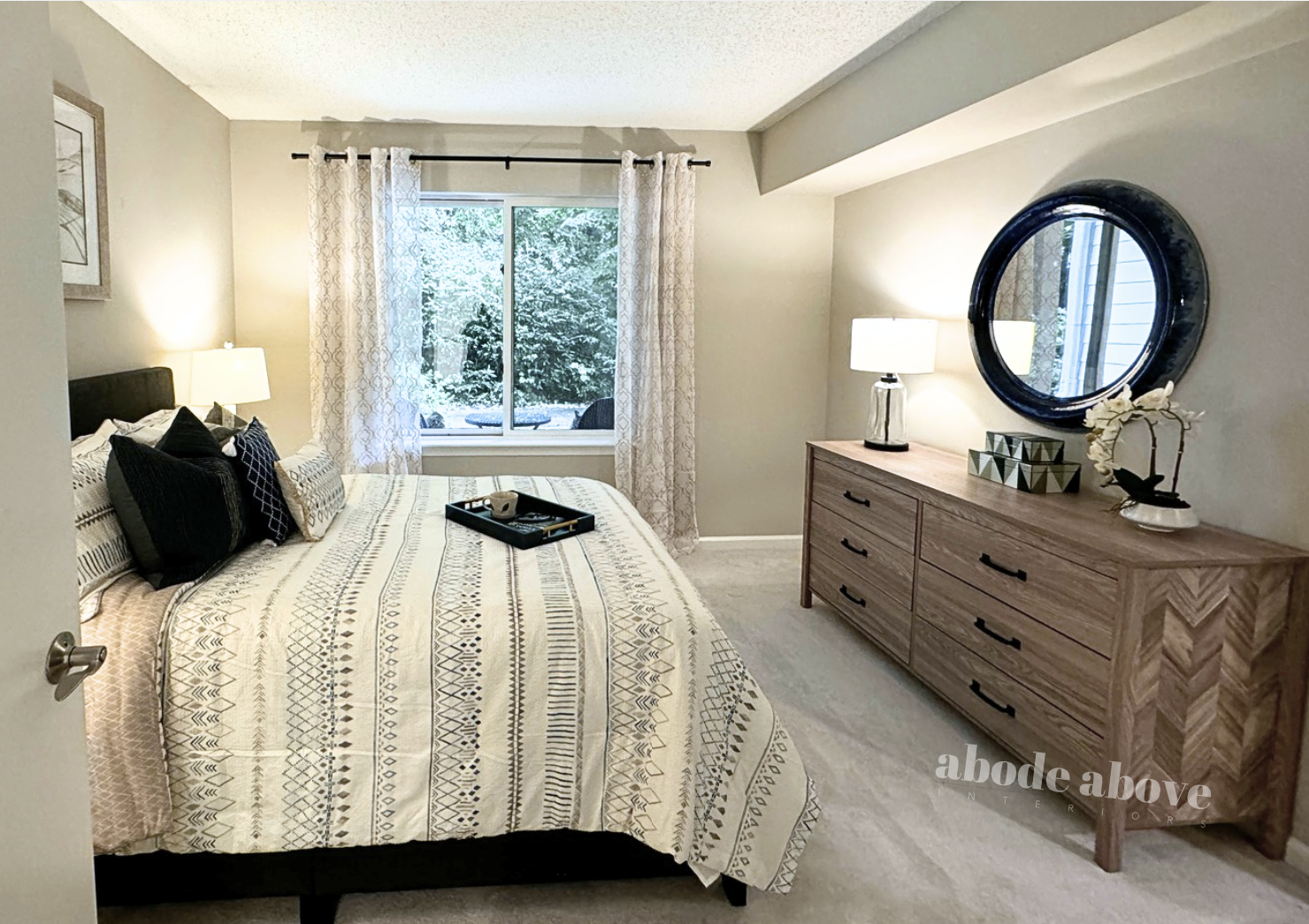Working as a Staging Professional – A Designer’s Perspective
As an interior designer, I usually dive into projects that are all about personalizing a space, making it perfect for a homeowner's everyday life. But every now and then, I take on a different type of project – one that's fast-paced and driven by a whole different goal: staging.
Staging homes is like hitting pause on the usual creative process and switching gears. Instead of designing a space around someone’s unique tastes, the goal is to create a neutral, welcoming look that appeals to anyone walking through the door. And honestly, it’s a refreshing change of pace.
Step One: The Walkthrough
The process usually starts with an empty home or condo. My first task? Measuring and photographing every room from top to bottom. At this point, I’m not focused on style or aesthetics just yet. It’s all about capturing the space in its bare bones form so I can plan for the best furniture placement and flow later. This part may seem boring, but it's actually crucial to ensure everything comes together smoothly later on
Step Two: Designing for Appeal
Once I’ve got all the measurements and photos, it’s back to my office to design the staging plan. This is where it gets interesting – instead of designing for one family, I’m designing for everyone. The trick is to create a space that highlights the home’s best features without overshadowing them. Whether it’s choosing neutral-toned furniture to make a room feel bigger or adding small touches to cozy things up, every decision is about making the home feel inviting.
Step Three: Installation Day
Then comes the day where everything comes together: installation day. This is where the magic happens. Furniture and décor get delivered, and I jump right into setting everything up. It’s fast-paced – there’s often a tight deadline to meet before listing photos or an open house. But seeing an empty home transform into something beautiful in a matter of hours? That never gets old.
Why Staging is Essential
Staging may be a shift from my usual design projects, but it’s no less important – in fact, sometimes it’s even more crucial. A well-staged home can make a huge difference in how quickly it sells or gets rented. It allows potential buyers or renters to picture themselves living there, which is key when it comes to making that sale.
For clients and property owners, staging is a super convenient step. It takes the pressure off them to figure out how to present the home, while also making sure it looks its absolute best for viewings. And for me, it’s a chance to switch things up and use my skills in a different way. It’s a fun challenge to create a look that’s both neutral and eye-catching at the same time.
At the end of the day, whether I’m designing a home for someone to live in for years or staging one to sell, the goal is the same: to make a space feel full of potential. And with staging, it’s all about letting potential buyers or renters see the possibilities for themselves. Sometimes, giving a home that fresh, blank slate is just what it needs to tell its next story.






